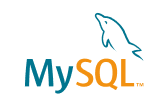Easy setup and maintenance
Create database clusters with just a few mouse clicks and connect to them through our easy-to-use user interface or API. Transferring databases from other sources is quick and easy, minimizing system downtime.
Concerned about the unstable performance and maintenance costs of your databases? We offer databases as a service and with it high availability, data protection and backup, as well as the ability to monitor processes. Scale at the click of a button without worrying about administration - this task we take care of.
The flexibility, speed and security of our cloud databases are all you need to keep your business running at high efficiency.
Deploy a high-performance database cluster quickly and easily.
Create database clusters with just a few mouse clicks and connect to them through our easy-to-use user interface or API. Transferring databases from other sources is quick and easy, minimizing system downtime.
Reduce infrastructure support costs with managed databases that require no significant upfront investment. You pay only for the resources you actually use, resulting in significant savings over traditional infrastructure fee models.
Keep your operations speedy with the reliable hardware we use - best-in-class Intel Xeon Gold and Platinum series processors and ultra-fast NVMe disks.
Get uninterrupted database performance and high system availability with automatic failover to a standby node that provides automatic failover and minimal downtime.
Scale up anytime to amplify your business growth. Change the size of your database clusters anytime and add more CPU, RAM, and storage. Easily add additional nodes to improve operations and performance.
Work with databases on an isolated private network associated with your account. Internet access is only allowed for whitelisted queries. Data is encrypted in both transmission and storage, ensuring confidentiality and protection from unauthorized access.

It is a development and testing solution because it allows you to deploy the database on a single server, reducing the cost of setting up a test infrastructure.
Ideal for small projects where optimal performance and reliability are important. It provides high data reading speeds and continuous operation.
Used to store databases for most projects, including highly loaded systems and those that require reliable information retention. Offers fault tolerance, automatic recovery and failover.
The DBaaS concept involves storing and managing data in a cloud environment, where the user does not need to install and maintain a database - he gets a ready-made and optimized solution in the cloud.

Open source distributed streaming processing platform. Provides high throughput and ensures streamlined data delivery between producers and consumers. Ideal for streaming data processing, event-notification architecture implementation and real-time big data processing.
Discover
High-performance open source columnar database. Provides fast analytics and big data processing. It is optimized to run complex analytical queries on large datasets. ClickHouse offers high speed, efficient resource utilization and scalability, making it a popular choice for real-time analytics and big data workloads.
Discover
A distributed search and analytics system. It is well suited for scenarios where fast and scalable data access is required, such as site search, log analysis and real-time data monitoring.
Discover
High-performance distributed database with great flexibility, scalability and parallel query processing. It is the best choice for analytical tasks and big data processing.
Discover
A flexible NoSQL database optimized for storing unstructured data such as documents, images and social media. With easy scalability and high performance, MongoDB is the ideal choice for Big Data projects and applications requiring real-time data processing.
Discover
A powerful relational database that provides high performance and reliability. It is optimally suited for web applications, e-commerce and CMS where handling large amounts of structured data is important.
Discover
A powerful data mining and analysis tool optimized for processing large volumes of data and extracting valuable insights with full-text search, advanced analytics and data security. Well suited for complex analytical systems and real-time data monitoring.
Discover
A powerful and reliable open source relational database. It has a wide range of features, supports ACID transactions and provides flexibility for storing and processing structured data. Supports extensions and provides powerful features for database developers and administrators.
Discover
A fast, scalable storage system best suited for caching, sessions, message queues, and lightweight data analytics. Its flexibility in data structures and high performance make Redis a popular solution for web applications.
DiscoverProvide continuous protection and instant access to rapidly growing datasets. Highly scalable and cost effective storage that integrates with your application scenarios.
Distribute traffic and workloads in the most efficient way: no server downtime, overload or underutilization.
Can't find an answer to your question? Ask us and we'll tall you!
Managed services is a service delivery model in which a vendor or provider provides a service to a client, but takes care of the infrastructure on which the service runs. We can say that managed services are a type of outsourcing where the client leases and fully outsources non-core IT systems or assets to the provider, and gets access to the functionality of the service.
We provide the following managed services:
With managed services, the client can focus on working with the services, enjoy all their benefits, while we take responsibility for organizing and operating the clusters on which these services operate.
Our area of responsibility includes:
Yes, of course, you can rent cloud infrastructure and use it as you like. If you deploy the cluster you need yourself, you can save money on it. Managed services allow you to delegate cluster management responsibilities to professionals if you are not comfortable doing it and want to focus on your core business.
Our backup policy varies depending on the specific managed service. Generally, automatic backups are performed nightly between 1:00 AM and 5:00 AM GMT+4, and these are retained for a period of seven days. Additionally, clients have the option to initiate their own backups at any desired time, providing flexibility to meet specific data retention requirements.
A cluster is a set of several servers connected by a communication channel, working together to perform common tasks within a single parallel or distributed system. Simply put, it is a number of servers that are united to provide computing resources for your service.
Yes, of course, if the architecture of the service allows you to use only one host, the client can limit itself to it.
No, as part of managed services, we do not provide the client with superuser privileges for the servers that are part of the cluster.
If the disk of a server that is part of the cluster is 80% full or more, the client will receive a warning and an offer to increase the size of the cluster disk space.
If the cluster disk space runs out, the cluster will automatically go into read-only mode and it will be impossible to write data to the cluster. The client will be notified immediately.
To restore the ability to write data to a cluster that is in read-only mode, you must increase the size of its disk space.
Our managed services implement automatic data backup. However, in case of failure, it will be possible to restore the database state only to the state that was at the time of one of the backups, which are usually created once a day.
To ensure data protection and prevent data loss, it is recommended to add replicas to your cluster. If the primary database fails, the replica will automatically take over its functions and ensure system continuity. The recovery of the primary database that has failed will be performed automatically and it will be included in the cluster again, but as a replica.

If you work in IT, the term “cloud” isn’t just a buzzword — it’s a powerful tool for storing and processing data.

PaaS (Platform as a Service) was initially designed as a solution for developers to build applications without dealing with server setup and infrastructure management.

TCP/IP is the backbone of everything. This protocol stack is like the circulatory system of the Internet and cloud computing.